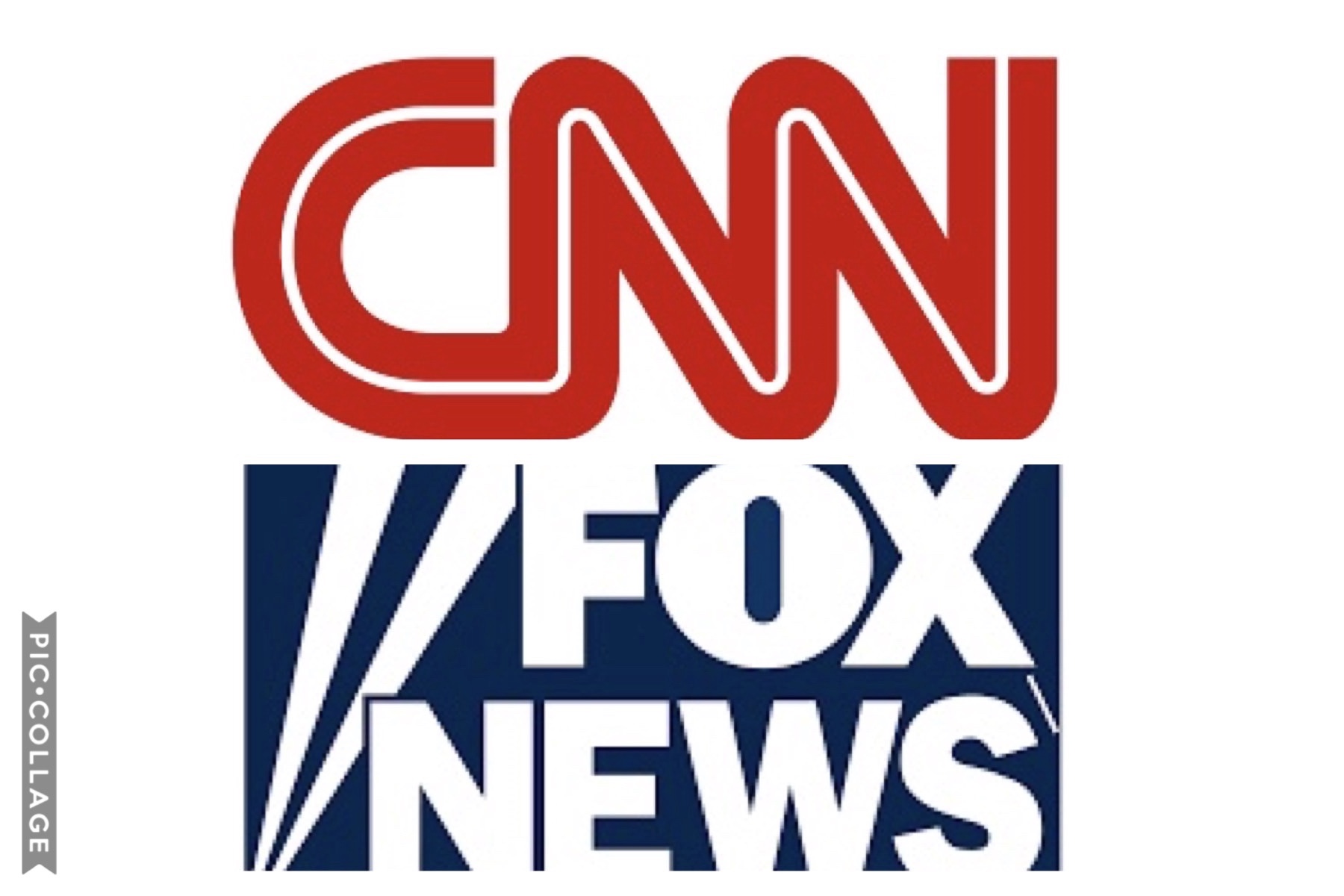When reading articles from different media sources, most of us know that we should make a constant effort to comb through news, searching for bias. These days, media bias towards one side or the other seems virtually unavoidable. To analyze bias in the media, I looked at two “biased” sources– left-leaning CNN and right-leaning Fox News–and analyzed their reporting of the Brett Kavanaugh investigation, studying their use of diction, syntax, and other rhetorical elements, much like how any AP student has likely examined a piece of text in English classes.
Methodology:
As a check on my own personal bias, I took every necessary precaution when choosing articles to analyze. To avoid cherry picking articles that would likely include some form of bias, I simply completed an advanced search on each media outlet’s websites, searching for the two most recent news –not opinion– articles written about the controversial nomination of Brett Kavanaugh.
The result of my search? Four articles: Brett Kavanaugh’s drinking at Yale comes into renewed focus, Washington holds its breath as the FBI investigates Kavanaugh, Brett Kavanaugh sex assault talk moves to alcohol in media’s attempt to follow left’s lead, critics say, and Trump approves FBI expansion of Kavanaugh background check.
Analysis: Title
From simply the titles alone, do you think you can pinpoint which articles comes from which source? For the two articles describing the continuation of the investigation, the titles seem to lack any bias, so it’s pretty hard to decipher the source. CNN produced the article “Washington hold its breath as the FBI investigates Kavanaugh”, while Fox News wrote the article “Trump approves FBI expansion of Kavanaugh background check”.
However, for the two articles discussing the investigation of Kavanaugh’s drinking habits, inherent bias becomes fairly apparent. CNN’s article includes tactful diction such as “renewed focus” suggesting that the drinking habits of Kavanaugh require further investigation, while Fox News’ title implies that the “mainstream media” is focusing on the wrong aspects of the allegations against Kavanaugh.
Analysis: Diction
Whether purposefully or not, all four article’s unique word choices reveals some form of bias. Fox News’ Background Check article –although ultimately it was relatively free of obvious bias– included a few choice words and direct quotations which exposed their true opinions about the FBI investigation. For example, Fox describes Kavanaugh’s testimony as “fiery,” implying that he bravely defended his honor and reputation amidst a dubious crowd. Additionally, when describing the testimonies of those defending Kavanaugh–like PJ Smyth– Fox News includes adverbial phrases such as “fully cooperated” and “truthfully answered” to increase the validity of his statements, but do not choose to include such statements when describing Ford or Deborah Ramirez’s testimonies.
In CNN’s FBI Investigation article, the article uses diction emphasizing the uncertainty of the investigation, stating that the past week has been “mired with uncertainty” and “swirled with unknowns,” implying that the investigation has not been completed with the organization and precision that it should have been completed with. Additionally, with the inclusion of appositives tinged with diction with negative connotations, CNN questions the validity to President Trump’s opinions on the matter, stating that Trump’s comments surrounding the investigation only make matters “murkier.”
So, the Fox News articles strengthen the validity of those defending Kavanaugh, while CNN attacks Trump’s validity.
In the two articles surrounding Kavanaugh’s drinking habits, there is also a significant amount of bias present on both sides. Starting with the right-leaning article, Fox News criticizes the left, stating that liberal journalists “complain” and “simply declare” statements without any verification that they are true. Through this distinct choice of diction, Fox News not so subtly reveals their true opinions on the opposing side. Fox continues to question the liberal media, using choice words such as “parsed, sophomoric language” to question the truthfulness and validity of their statements.
Meanwhile, CNN’s article lacks such diction, and instead is composed mainly of direct quotations from both the left and right sides.
Analysis: Nomenclature
An interesting feature that I noticed in all of the articles is the naming of both Kavanaugh and Ford. The Fox New’s background check article first introduces Kavanaugh as “Supreme Court nominee Brett Kavanaugh”; meanwhile, the first time the article mentions Ford, she is labeled one of the “accusers”. By failing to name her when she is first introduced, Fox News takes some of the power away from Ford, labelling her as an abstract “accuser” instead of her true title. In fact, Ford’s name does not pop up in the article until over halfway through the article. When she is finally mentioned by name, she is simply referred to as Christine Blasey Ford, thus stripping her of her title of doctor.
Interestingly, the CNN article shares this same phenomena; the writer introduces Kavanaugh as “Supreme Court nominee Kavanaugh”, while Ford is simply referred to as Christine Blasey Ford.
In fact, throughout all four of the articles, Ford is only referred to as Doctor Christine Blasey Ford once: in one of the Fox News articles. Clearly, both media outlets share this form of bias in common.
On the other hand, both sides typically refer to Kavanaugh as a Supreme Court nominee, excepting one CNN article where he is first described as simply Judge Kavanaugh. However, it is interesting to note that both CNN and Fox News seem to grant Kavanaugh with a title that demonstrates that he is in a position of power, while Ford rarely receives this same treatment.
Clearly, no media source is ever free of bias; in fact, both left and right leaning media outlets utilize specific diction, include particular titles, or select certain names which reveal their true leanings. Are these rhetorical elements used purposefully, or do writers simply fail to conceal their own personal beliefs? That, of course, is all up for analysis.

Leave a Reply